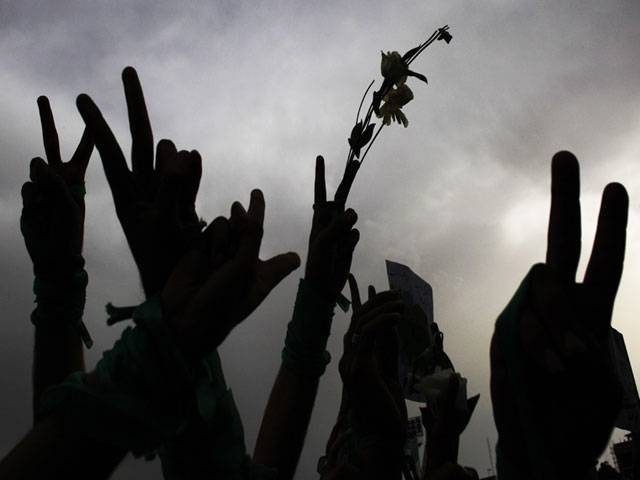ISLAMABAD - “In order to establish modern Islamic civilisation on strong footing we are required to refer to the Islamic teachings. We as Muslims are supposed to understand the true essence of our religion to be successful in the present age when Muslims are surrounded by unlimited challenges.”Speaker of the Islamic Republic of Iran, Ali Larijani said this while addressing the concluding session of the conference “The Legacy of Islamic Civilisation: Lessons for the Contemporary Muslim World” jointly organised by the Department of History, Taxila Institute of Asian Civilisations, Quaid-i-Azam University and Cultural Consulate Embassy of Iran. He emphasised the importance of the present conference in bringing the scholars of “Muslim History and Art and Political Thought” together to make recommendations regarding the challenges being confronted by the Muslims all across the world. QAU Vice-Chancellor Prof Dr Masoom Yasinzai in his opening remarks said that Muslim World should get inspiration from its past glory and come forth with innovative ideas based on its Islamic legacy to deal with present challenges. He emphasised that Islamic history and civilization have contributed extraordinarily to the development of the world civilizations, especially in the fields of Art, Sciences, Political thought, Ethics and other intellectual spheres. “Today, Islamic civilisation is as relevant as in the past in terms of bearing lessons for the Muslim world in the contemporary world. The traits of Islamic Civilization have been the subject of several scientific researches and many academics and scholars have underscored various valuable aspects in their studies from which lessons can be drawn for the contemporary Muslim World,” he added. Dr. Masoom reiterated that Muslims have greatly impacted the political, economic, social and military history of the World especially the Middle East, Asia and even Europe wherein lies its deep roots and influence of the Islamic Civilisation. He further said that the fast-growing interests of the Western world in Islamic regions, international conflicts and globalisation have changed the influence of Islam on the Muslim world in particular in the contemporary history. “I hope that scholars would deliberate on these issues in the light of history, art and political thought, which would contribute towards progress in knowledge and betterment and peaceful co-existence of humankind” said the Vice-Chancellor. He lauded the efforts of the organizers and said that Pakistan’s relations with Iran will go a step forward as a result of this valuable academic activity. Dr Razia Sultana, chairperson, Department of History, QAU and Secretary of the conference in her welcome address welcomed the guests and said that conference is the result of longstanding good will between the Cultural Consulate, the Embassy of Iran and the Quaid-i-Azam University. According to her, Islamic Civilization was quite huge not only in terms of territorial stretch and time period but also in terms of achievements as well it was leading other civilizations before and after it. The piety, spirituality and austerity of the pious caliphs are role model for the leaders of the Muslim world at present. The political and economic system and social justice what they established at that time is the hallmark of Islamic Civilization. The democratic spirit of fair and transparent election of the leader is an example set by them to be emulated by the political leadership which itself a solution of several of our problems that the Muslim world is faced today. She termed the conference as an important opportunity for the scholars, students and academicians to look into the legacy of Islamic Civilization and come forth with some important lessons and constructive conclusions, which could provide a way out for resolving the problems currently faced by the Muslim World. Dr. Qasam Jafrari, Chairman Standing Committee on Education, Majlis of Islamic Republic of Iran also addressed the inaugural session.
Saturday, April 20, 2024
Muslims urged to get inspiration from past glory

Pak economy improving, funds will be provided on request: IMF
9:57 PM | April 19, 2024
Minister advocates for IT growth with public-private collaboration
9:57 PM | April 19, 2024
Judges' letter: IHC seeks suggestions from all judges
9:55 PM | April 19, 2024
Formula 1 returns to China for Round 5
9:05 PM | April 19, 2024
Germany head coach Julian Nagelsmann extends contract till 2026 World Cup
9:00 PM | April 19, 2024
A Tense Neighbourhood
April 19, 2024
Dubai Underwater
April 19, 2024
X Debate Continues
April 19, 2024
Hepatitis Challenge
April 18, 2024
IMF Predictions
April 18, 2024
Kite tragedy
April 19, 2024
Discipline dilemma
April 19, 2024
Urgent plea
April 19, 2024
Justice denied
April 18, 2024
AI dilemmas unveiled
April 18, 2024
ePaper - Nawaiwaqt
Advertisement
Nawaiwaqt Group | Copyright © 2024





